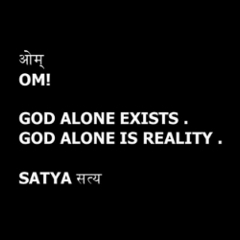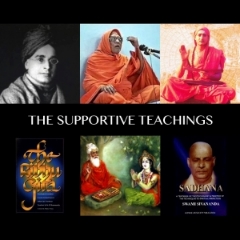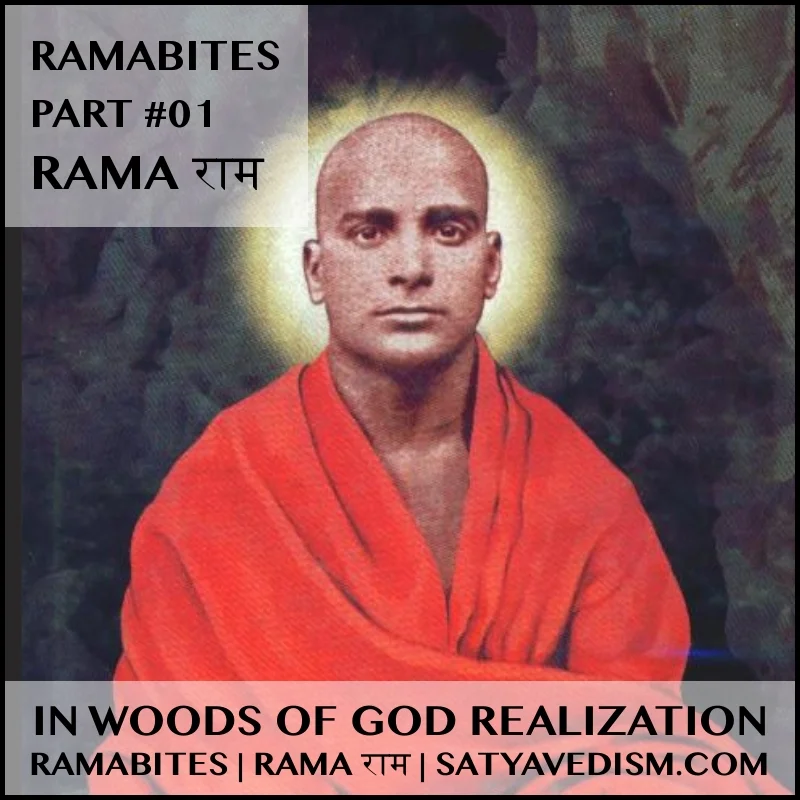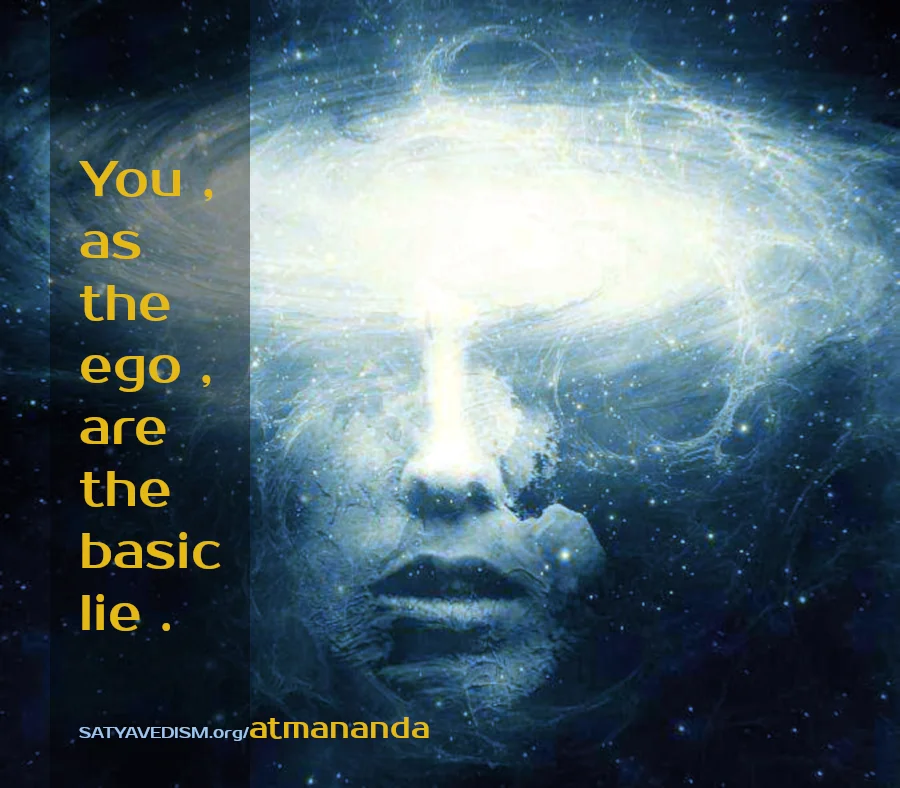BRHADARANYAKA UPANISAD | 3.9.28 | AMOETD
| | homeBRHADARANYAKA UPANISAD | 3.9.28 | SRI SANKARACARYA
jata eva na jayate , konvenam janayet punah ; vijnanam anandam brahma , ratir datuh parayanam , tisthamanasya tadvidah . || 3.9.28.7 ||
7 . If you think one is ever born , I say , no , one is again born . Now who should again bring one forth ? — Knowledge , Bliss , Brahman , the supreme goal of the dispenser of wealth as well as of one who has realised Brahman and lives in It .
|| BHASYA || : You think one is ever born , and there is nothing more to ask about one — a question about birth is possible only of one who is yet to be born , and not of one who is already born ; but a person is ever born , so no question about one's birth is admissible — I say , no . What happens then ?
After death one is again born of a certainty , for otherwise you would be assuming that one reaps the fruits of actions that one has never done , and fails to obtain those of actions one has actually done . So I ask you , who should again bring one , the dead person , forth ?
The Brahmanas did not know that : that root of the universe out of which the dead person is again born was unknown to them . Hence , being the best of the knowers of Brahman , Yajnavalkva defeated the Brahmanas and took away the cows . The story is finished .
The Sruti in its own form now tells us of the root of the universe , about which Yajnavalkya asked the Brahmanas , and gives the words that directly describe Brahman :
Knowledge , or Pure Intelligence , which is also Bliss , not smitten with pain like sense-perception , but serene , beneficent , matchless , spontaneous , ever content and homogeneous .
What is that ? Brahman , which has both the characteristics ( Knowledge and Bliss ) . The supreme goal , or the bestower of the fruits of actions , of the distributor of wealth , ie of the sacrificer who engages in rites — the word " Rati " ( wealth ) has a possessive force — as well as the supreme goal of one who has realised Brahman and lives in It , having renounced all desires and doing no ( ritualistic ) work .
Here is something to discuss :
The word " bliss " is generally known to denote pleasure ; and here we find the word " bliss " used as an epithet of Brahman in the expression " Bliss , Brahman " .
Elsewhere in the Srutis too we have :
" One knew bliss to be Brahman " ( Tai . III . 6 ) ,
" Knowing the bliss of Brahman " ( Tai . II . 7 ) ,
" If this Supreme Self were not bliss " ( Tai . II . 7 ) ,
" That which is infinite is bliss " ( Ch . VII . xxiii . 1 ) ,
" This is its supreme bliss " , etc ( IV . iii . 32 ) .
The word " bliss " is also commonly known to refer to pleasure that is cognised . The use of the word " bliss " in the above quotations would be justified if the bliss of Brahman be an object of cognition .
It may be urged : On the authority of the Srutis , Brahman is bliss that is cognised ; so what is there to discuss ?
The reply is : Not so , for we notice Sruti texts that are contradictory . It is true that in the Srutis the word " bliss " refers to Brahman ; but there is also the negation of knowledge when there is oneness . For example :
" But when to the knower of Brahman everything has become the Self , then what should one see and through what , . . . what should one know and through what ? " ( II . vi . 14 ; IV . v . 15 ) ,
" Where one sees nothing else , hears nothing else , knows nothing else , that is the infinite " ( Ch . VII . xxiv . 1 ) ,
" Being fully embraced by the Supreme Self , one knows neither anything outside of oneself " , etc ( IV . iii . 21 ) .
Therefore on account of the contradictory Sruti texts a discussion is necessary . Hence we should discuss in order to ascertain the true meaning of the Vedic passages . Moreover , there is a divergence of opinion among the advocates of liberation .
The Samkhya and Vaisesika schools , for instance , while believing in liberation , hold that there is no joy to be cognised in it , thus differing from others , who maintain that there is surpassing joy in it , known only to the person concerned .
Now what is the correct position ?
Pritna facie view : There is joy to be cognised in liberation , for the Srutis mention bliss etc with regard to it , as in the following passages :
" Laughing ( or eating ) , playing and enjoying " ( Ch . VIII . xii . 3 ) ,
" If one desires to attain the world of the Manes , ( by one's mere wish they appear ) " ( Ch . VIII . ii . 1 ) ,
" That which knows things in a general and particular way " ( Mu . I . i . 9 and II . ii . 7 ) ,
" Enjoys all desires " etc ( Tai . II . v . 1 ) .
OBJECTION : But is not knowledge impossible when there is oneness , since the different factors of an action are then absent ? Every action depends on a number of factors , and cognition too is an action .
TENTATIVE ANSWER : The objection does not hold . On the authority of the Srutis we must admit that there is knowledge of the bliss of Brahman . We have already said that such Sruti texts as , " Knowledge , Bliss " , etc , would be meaningless if the bliss itself were incapable of being cognised .
OBJECTION : But even a scriptural text cannot make fire cold or water hot , for these texts are merely informative . They cannot tell us that in some other country fire is cold , or that in some inaccessible country water is hot .
TENTATIVE ANSWER : Not so , for we observe bliss and knowledge in the individual self . Texts such as , " Knowledge , Bliss " , etc , do not convey a meaning that clashes with perception and other means of knowledge , as for instance the sentence , " Fire is cold " , does .
On the contrary , we feel their agreement with them . One directly knows the self to be blissful , as when one feels , " I am happy " . So the agreement in question with perception etc is quite clear . Therefore Brahman , which is bliss , being knowledge as well , knows Itself . Thus would the Sruti texts cited above , viz . " Laughing ( or eating ) , playing , enjoying " , etc , which prove the existence of bliss in the Self , be found to be consistent .
ADVAITIN'S REPLY : You are wrong , for there can be no knowledge in the absence of the body and organs . Absolute separation from the body is liberation , and when there is no body there can be no organs , for they will have no support . Hence too there will be no knowledge , there being no body and organs . If knowledge could arise even in the absence of the body and organs , there would be no necessity for any one to possess them . Moreover ( if Brahman as Knowledge Absolute cognises the bliss in liberation ) , it will contradict the oneness of Brahman* .
OBJECTION : Suppose we say that the Supreme Brahman , being eternal Knowledge , ever knows Itself as Bliss Absolute ?
REPLY : No , ( this has just been answered ) . Even the person under bondage , when freed from relative existence , would regain one's real nature ( Brahman ) . ( So the same argument would apply also ) .
Like a quantity of water thrown into a tank , one does not retain a separate existence so as to know the blissful Brahman . Hence , to say that the liberated person knows the blissful Self is meaningless . If , on the other hand , the liberated one , being different from Brahman , knows the bliss of Brahman and the individual self as , " I am the Bliss Absolute " , then the oneness of Brahman is contradicted , which would be against all Srutis ; and there is no third alternative .
Moreover , if Brahman ever knows Its own bliss , it is superfluous to distinguish between awareness and unawareness . If It is constantly aware of this bliss , then that is Its nature ; hence there is no sense in maintaining that It cognises Its own bliss .
Such a view would be tenable if ever there was the possibility of Its not knowing that bliss , as for instance one knows oneself and another ( by an act of will ) . There is certainly no sense in distinguishing between a state of awareness and one of unawareness in the case of one whose mind is uninterruptedly absorbed in making an arrow , for instance .
If , on the other hand , Brahman or the Self is supposed to be knowing Its bliss interruptedly , then in the intervals when It does not cognise Itself , It must know something else * ; and the Self would become changeful , which would make It non-permanent .
Hence the text , " Knowledge , Bliss " , etc , must be interpreted as setting forth the nature of Brahman , and not signifying that the bliss of the Self is cognised .
OBJECTION : If this bliss is not cognised , such Sruti texts as " Laughing ( or eating ) , playing " , etc , will be contradicted .
REPLY : No , for such texts only describe actions happening normally , because of the identity of the liberated person with all ( infinite existence ) . That is to say , since the liberated person is identified with all , therefore wherever we observe the laughing etc — in the Yogins or in the gods — the Srutis merely describe them as they are with regard to the liberated person , simply on account of one's identity with all . It is but a eulogy on liberation , which is synonymous with such identity .
OBJECTION : If those passages merely describe what happens normally , then there is the chance of the liberated person's being affected by misery also . If , in other words , one partakes of the laughing etc , happening normally to the Yogins and others , one may also suffer the misery that ( plants and other ) stationary existences experience .
REPLY : No , all these objections have already ( p 212 ) been refuted on the ground that the distinctions of happiness , misery , etc , are but superimposed by the delusion created by contact with the limiting adjuncts , the body and organs , which are the products of name and form . We have also stated the respective spheres of the apparently contradictory Sruti texts ( p 273 ) .
Hence all passages containing the word " bliss " should be interpreted like the sentence , " This is its supreme bliss " ( IV . iii . 32 ) .
( NOTES : * By making It both subject and object . | * And thereby become finite and mortal ( Ch . VII xxiv . 2 ) , or else become unconscious . )
|| UPADESA SAHASRI : A METHOD OF ENLIGHTENING THE DISCIPLE || I.I.6 || COMPLETE AMOETD SERIES ➤➤ | INTRODUCTION ➤➤ ||
|| THIS SCRIPTURE SERIES SOURCE || ➤
|| 1 || http://www.SATYAVEDISM.com ||
|| 2 || http://bit.ly/SRIADISHANKARA ||
http://www.SATYAVEDISM.com/shankara/amoetd/
SOURCE | SATYAVEDISM.ORG



































































































